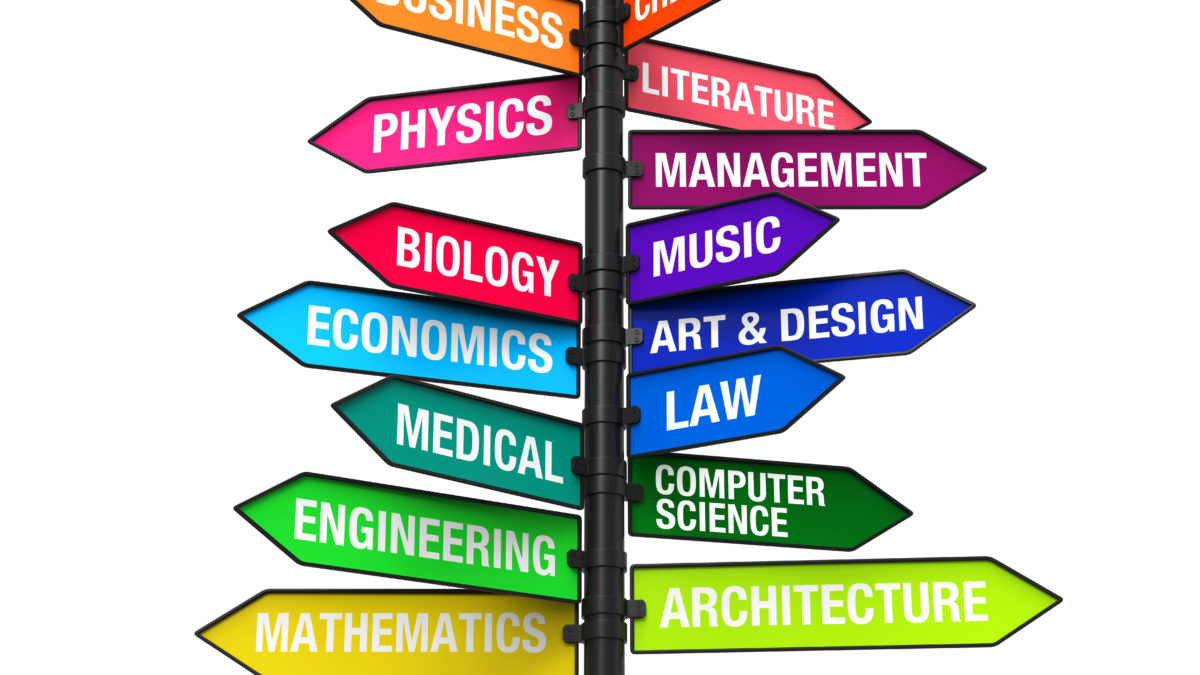At my high school graduation I was gifted books that were meant to help me succeed in college.
The most useful book was Cal Newports’s How to Win at College.

As someone with Dyslexia, I was nervous that I wouldn’t be able to handle the workload and I would fall behind.
Cal, like myself, was not the best student in high school, but he figured out how to learn. Working smarter rather than harder is critical.
Some of my tips below will be from this book, but I also took a lot from personal experiences.
Full disclosure of my collegiate History:
I attended Boston University for 1 year 2013-2014. I then transferred to USC and graduated 3 years later in 2017 with a BA degree in Communication. I also studied at UCLA extension (marketing certification), American University in Paris (Study Abroad), New York Film Academy, and I just got an MBA from IDC Herzliya in Israel.
I’m not an expert, nor did I get perfect grades, but I’ve studied a lot at different universities and these tips apply to any school.
1) Don’t Do All of Your Reading

If you’re next lecture covers the reading, it’s better to skim, get the gist of the main points, and fill in the gaps during class by taking great notes.
Depending on your major, you can get assigned with hundreds of pages of dense reading a week. You need to learn how to cover it quickly.
The best way to cover it is to read chapter introductions and conclusions carefully, and skim the rest.
Make a note of the important sentences, either by marking or highlighting, marking is preferred because it’s faster.
Don’t try to understand the significance of each paragraph, note the parts that support the thesis. You will miss things for sure, but your professor will not, so pay very close attention when they are talking about the text because it will save you time, and also show you what is important.
When it comes time to write an essay or take an exam, review the sentences you marked and your class notes and you should be ready to go.
There have been cases where professors will be mean and say that exams will cover things only in reading, not in lectures, in this case it makes sense to read all in preparation, but that is less common.
Great class notes are critical, really pay attention and you will be rewarded big time when it comes to exams.
2) Create Consistent Study Habits

Come up with specific times to study based on your schedule and stick to them.
Block it out like a class time. This way you are scheduling time to get work done. You will spend a lot more time studying and on homework in college than in class so it is important to block out time based on your schedule and to stick to that time/ be consistent every week.
The cool part about this is you get to pick where you are studying and when.
My favorite place to study at USC was the quiet section in the basement go architecture library. But I’m crazy.
Switch up your study spots spots, (coffee shop, library, lawn, study lounge etc.) but not your study times.
This will increase your productivity during the weekdays and ultimately give you more free time on weekends.
3) Drop a Class Every Semester

If the professor is bad, or if it seems too hard, or stupid, or a waste of your time, try to avoid it. Unless it’s a core requirement and is only taught by one teacher and you absolutely have to take it (which is super rare) don’t suffer through a class. Not worth your money, time, or effort.
Schedule more classes during syllabus week and drop the ones with the worst professor or least interesting curriculum.
Don’t be afraid to change up your schedule, it’s not set in stone till the third week or so (this obviously depends on the school, but in general that’s how it works). I’ve taken some bad classes and they suck. And I’ve also come into a class after missing multiple lectures and still aced/ loved them. So don’t be afraid to switch into a different class.
You will be happier in the long run.
4) Make a Friend & Study Partner in Each Class

I always find its good to have a friend to study with for exams, work on group projects, and to share notes with.
If you miss a class or don’t understand a topic you can help by sharing notes or going through it. Classes more enjoyable if you have friends in them.
I wouldn’t necessarily recommend your study partner be your best friend, as you probably won’t get work done efficiently.
But it’s great to have study friends/ friends in your major to work on things (essays, notes, math/ science problems) together.
This keeps you motivated and adds a social component to the work.
5) BEWARE of Ultra-Competitive Classmates

You probably know some overachievers. There is nothing wrong with being an overachiever, but they are usually highly competitive. There is also nothing wrong with being competitive. If you want to get the best grades in the class so you can get the best job or start the best business to make the most money, more power to you.
I love high achieving people, and they inspire me to be better.
However!!!
BEWARE big time of getting help from ultra competitive classmates.
I’ve seen some give out wrong answers to questions to purposely screw people over.
Additionally, If your class sets up a Google Doc for answers to professor questions, triple check them against your own and fix them if they are wrong- if you have time. I’ve seen people fail exams based on bad answers on Google Docs. I’ve also seen the professor call out a class because a lot of students put the same wrong answer to an exam question, after doing some research I found that the class Google Doc, which I didn’t look at/ use, had that wrong answer- so the students all studied from a bad source (huge bummer and very questionable considering).
Might sound nuts, but watch your back, seriously.
6) No 8 AMs or Friday Classes!

I have broken this rule many times, however, if you can avoid these types of classes I highly recommend it.
Thursday nights are one of the most fun nights to go out.
I still recommend studying/ working on Fridays as it’s good to go into the weekend with work done, stress free, just don’t take classes on Friday.
If you go out on Thursday, you will be more likely to miss your Friday class, which is not good.
Unless you’re a total morning person, 8 AMs are tough to get to especially in the middle of the semester when school, work/ internships, extracurricular activities, and friends start to tire you out.
You want to feel rested and energized for class, and I found that to be difficult when the class started that early.
7) Start Long Term Start Projects the Day they are Assigned

You don’t have to get far but at least look at the requirements and pick a topic. This will get your mind working and will help in the long run. Working in chunks for a longer period of time will decrease stress about a big assignment.
Finish the assignment a few days early if possible but don’t turn it in.
Then, look at it again after a day with fresh eyes, when it feels ready turn it in. Professors don’t care if you turn the project in early or on time, but your heart rate will.
Never let yourself turn in something late. A lot of professors don’t accept late work. Or take a letter grade off each day it’s late… Not fun.
EXAMPLE: How to tackle a 20 page essay due in 1 Month
Day 1: Pick topic
Day 2-7: Research to see if topic makes sense/ has support/ or if I feel like writing that much on it. This helps shape your idea.
Day 8-9: Write your title. Create thesis and work on it/ provide examples.
Days 10-20: Researching to support your thesis, writing 2 pages a day.
Days 21-23: Editing
Day 24-26: Break
Day 27-29: Re-read/ edit
Day 30: Turn it in stress free.
You don’t have to follow this exactly… But I can assure you 20 pages aren’t being written in 1 night or even 3… So put in the time.
Also this way you’re working only an hour or 2 a day on the assignment rather than 10 hours a day a few days before its due.
Start Early and you will always finish easy.
Never plan to write an essay all-nighter style.
My Freshman year of college I fell asleep at the computer while pulling an all nighter to finish an important essay.
I woke up a 4 Am in a panic state. I finished the essay and printed it out 10 minuets before it was due in person. I then sprinted across campus in the snow to turn it in on time. This was extremely stressful, dangerous, and could have easily been avoided with better planning.
I got a B+ which is pretty lucky given the circumstances.
8) Pick a Major as Early as You Can

If you want to graduate in four years, I would recommend having a major declared at the latest, second semester sophomore year.
Picking a major can seem very daunting for some, I get it, but you have to understand that your major, a lot of the time, doesn’t define what you will end up doing for work.
Most universities have requirements of classes that you need to have for your major, so if you have one picked, you can get the core out of the way, start making friends in your major, and better plan out your experience.
If you enter college undeclared like I did, feel free to check out different majors, but don’t waste too much time because you could easily take 5 years or more to finish a 4 year degree. I know people who are cool with this, and honestly no one really cares if you take longer, but if that’s not what you want, pick a major and go all in. It will be easier to make friends, who you can coordinate schedules with, and get into a rhythm study and project wise.
9) Study for Exams Early

Study early and often.
During crunch time figure out what you don’t know and work your way back to what you do.
Study with friends, but also alone (unless specified, you will take the exam alone).
You will crush all exams if prepared!
Dyslexia bonus tip for exams:
If the exam requires a lot of note memorization, read your notes out loud and record them on your phone. Listen to your notes throughout the day when walking around or exercising, this will help embed the notes into your mind without having to stare at the same set of note pages over and over again.
10) Become Friends With Your College Advisor

They are there to help you, and they will be better at helping you and more willing to do so if they have a positive relationship with you.
They can advise you on what classes to take and when (to help with your workload), and which professors will be more suited to your learning style/ needs.
Get everything they recommend to you in writing.
I recommend this because major requirements can change and if your advisor makes a mistake (which is rare but I’ve seen it happen) you can show their recommendations to help argue for your case if you’re missing something.
Also it will be helpful to refer back to when picking classes.
Bonus Tip- Never Miss Your Class Registration Time
Most colleges give you a specific time to register for classes. Seniors or “4th years” get priority and it goes back from there.
Class registration affects your next semester so spend some time planning out which classes you should take both alone and with your advisor.
Classes aren’t set in stone but it’s important to register as early as possible because the good classes and good class times fill up quickly.
When your registration time hits be ready to go, because your peers will and you may miss out on great classes.
Don’t be afraid to crawl through rate my professor, and ask your classmates for advice on classes/ professors when planning. Your peers will be honest about which classes to take based on their experiences.
Final Thoughts
I hope these tips helped.
I will have more college tips going forward because there is so much to cover.
No one is perfect, but you don’t have to be. Always remember college is meant to be fun.
My next post on this will be social tips for college. These will help you have a good time, safely.
All the best,
Ariel


I’m not 100 convinced about this post. Your ideas are on point, but unfortunately it’s dangerous to rely upon whatever other people may think. Please elaborate, because I find you to be an excellent blogger and I would like to read more from you!
Appreciate the feedback. Just doing my best. Everything here is my opinion 🙂
Way cool! Some very valid points! I appreciate you penning thiks
post and thee rest of the website is also really good.
Glad you like it Kendrick! Appreciate the kind feedback 🙂
I do not even know how I ended up here, buut I thought this post was great.
I don’t know who you are but certainly yyou are going to a famous
blogger if you are not already 🙂 Cheers!
Thank you for the kind feedback 🙂
Pretty! This has been an extremely wonderful post.Thank you for supplying this info.
Of course! Thank you. Glad you enjoy it!
Your mode of describing all in this piece of writing is in fact pleasant, all be capable of simply be aware of it, Thanks a lot.
Appreciate it! Glad you like it 🙂
Would love to perpetually get updated outstannding web blog!
Glad you’re enjoying the blog 🙂
Thank you Fernando!
I need to to thank you for this fantastic read!! I definitely enjoyed every bit of it.I have
got you book-marked to look at new things you post…
Glad you enjoyed the College Study tips 🙂
I need tto to thank yoou for this fantastic read!!
I definitely enjoyed every bit of it.I have got you book-marked to look at
new things youu post…
Thank you! Glad you enjoyed the College Study Tips 🙂
I do not even know how I enjded up here, but I thought this pst was
great. I don’t know who you are but certainly you are going to a famous blogger if you are not lready :
) Cheers!
Thank youu for this very good posts. I was wanting to know whether you were planning of publishibg
similar posts to this. Keep up writing supewrb content
articles!
Hi Samual,
Glad you’re enjoying the content, yes will continue to create posts like 10 College Study Tips.
Hello There. I found your blog using google. Thhis iis an extremely well
written article. I’ll make sure to bookmark it aand return to read more of your usseful information. Thanks for thee post.
I’ll certainly return.
Hi, glad you’re enjoying the content 🙂
Glad you’re enjoying 🙂
Really interesting information, I aam sure
this post has touched all internet users, its really
really pleasant piece of writing on building up new website.
Really interesting information, I am sure this post
has touched all internet users, its really really pleasant
piece of writing on building up new website.
Nice blog here! Also your web site a lot up very fast!
I desire my site loaded up as quickly as yours…
I enjoy what yoou guys aare usually up too. This type of clever work annd reporting!
Keep up the very good works guys I’ve added you guys to my own video.
Howdy! I could have sworn I’ve been to this blog before but after browsing through some off the post I realized it’s new to me.
Nonetheless, I’m definitely delighted I found it
and I’ll be bookmarking and checking back frequently!
I ggot this site from my pal who shaeed wth me concerning this website and now this
time I am browsing this website andd reading very informative articles
or reviews at this place.
Hello all, here everty prrson is sharing such know-how, so it’s pleasant to read this website, and I used too go
to see this website daily.
Hello!Do you use Twitter? I’d like to follow you if that would be okay.
I’m definitely enjoying your blog and look forward too new articles.
Hi, I don’t but you can follow me @arielknowsnothing on Instagram 🙂